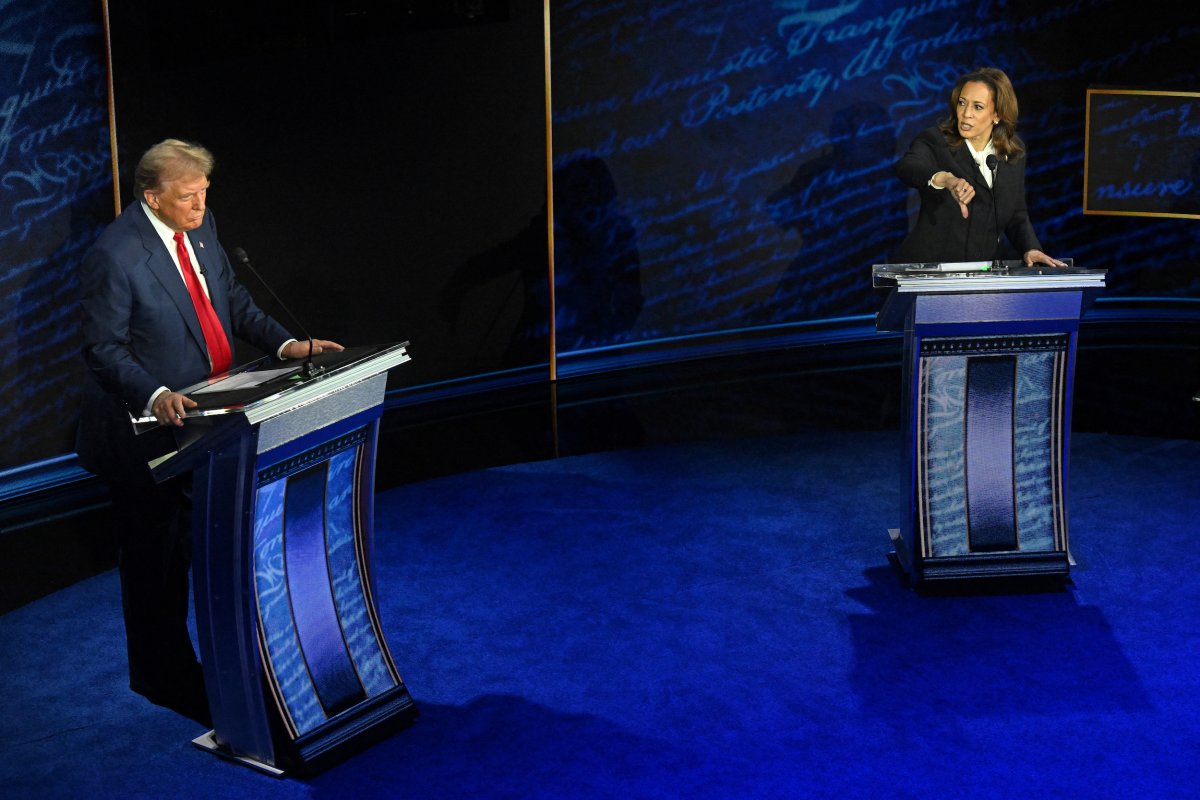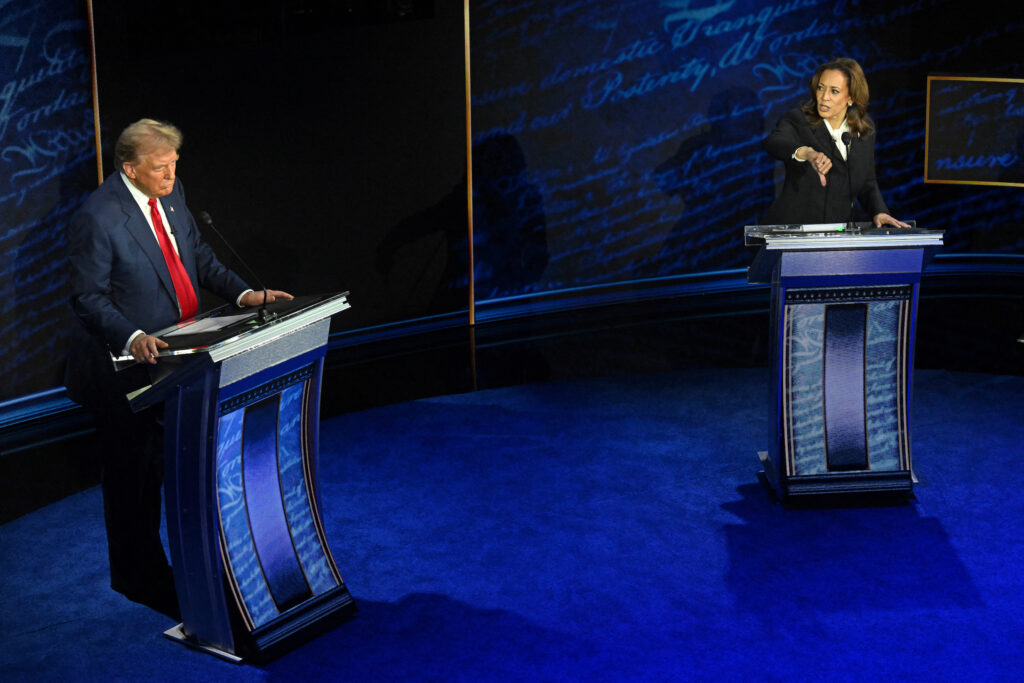As 2024 draws to a close, it should become clear that extraordinary times require extraordinary political leadership. Candidates running on the basis of a normal position of preserving the status quo with a few careful adjustments will only draw angry eyes from a critical segment of the American electorate. Too many of us feel trapped, pessimistic, lonely, anxious, and distrustful. Among young people, 58% say their lives lack a sense of meaning or purpose. Our people are facing a slowly developing crisis. Pointing out that inflation is no longer growing as fast and unemployment is much lower is a path to electoral irrelevance. The future belongs to a different kind of politics.
Some people who came of age in an era of relative stability and optimism are skeptical that politicians can do anything to restore Americans’ sense of meaning, purpose, and belonging. When Sen. Chris Murphy (D-Conn.) suggested that the government should pay attention to these issues, Politico ran the quietly sarcastic headline, “Sen. Murphy Wants to Help Make Friends.” I replied. The next day, National Review continued with the article, “The government won’t keep us warm at night.”
Such pessimism leads to politicians who have no desire to lead at all, but rather are lip service product managers who act as intermediaries between customers (voters) and engineers (technocratic policy wonks). Of course it applies. If that’s what political leadership is all about, it’s natural to be skeptical. But true leadership is different. It involves creating a unique and compelling vision of the future. The rest of us can unite toward that vision, and in the process harness all of our most natural human capacities: togetherness, mutual care, a deep sense of meaning, and purposeful work. It helps shape lives and communities.
These visions come in many forms: spiritual traditions, common mountains to climb, worlds to discover, problems to solve. But often the easiest shortcut to understanding who we are and what our common challenges are is to find someone to villainize. This strategy temporarily unites people around a shared hostility toward perhaps woke academics, MAGA supporters, immigrants, Russians, or other real or imagined enemies. That can lead to really terrible results and really only provides an imitation of attribution and meaning. But until something better comes along, it will become an increasingly attractive option for aspiring leaders to adopt.
This is because the vision that has animated our daily lives for the past few decades is past its expiration date. It has been called the “Washington Consensus,” “neoliberalism,” and “competitive individualism.” This is a kind of laissez-faire utopianism, a society in which all individuals and organizations simply pursue private interests, competing as ruthlessly as possible, with each individual accumulating the maximum amount of spoils. It can be summarized as the idea that in some way form a good society. For everyone. In this kind of society, “It’s just business, it’s nothing personal” sounds like a rational explanation for corporate brutality. Teachers teach students that we are responsible for building and pursuing our own personal visions of what is valuable and desirable. There is no real place for a shared vision where we might find a common purpose or sense of identity.
That vision, it turns out, is not about human flourishing. This eventually leads to the realization that we live in an eat-or-be-eaten, arbitrary world, where meaning and purpose are either self-soothing fictions or masks for greedy self-interest. There is a strong argument that the temporary appeal of the laissez-faire model was largely dependent on the existential threat of the Soviet Union. As long as we can tell ourselves that all of this frenzied competition is contributing to the free world’s victory over the forces of oppression and oppression, we can feel like it means something. I did. Many of us don’t feel that way, especially those born too late to remember the terrifying specter of what President Ronald Reagan called the “Evil Empire.” We are faced with troubling questions about who we really are and what we value.
Our times require a new generation of political leadership. There is no single path to new politics. Naturally, different leaders offer different visions. These are very personal and things that leaders feel intuitively. But there are a few things that can be said about the structure a viable vision requires.

more
Saul Loeb/AFP/Getty Images
A plausible new vision must represent more than just an “opportunity” or lack of constraints. It should provide a beautiful picture of where we can go and how we can come together. Consider Martin Luther King Jr.’s call not only to eliminate racism, but to build American society into a “beloved community.”
Photographs like this end up addressing deep human questions. The idea that issues of values and spirituality are private matters that are not acceptable for public conversation is a vestige of a dying system. For example, it has promoted much evil by suggesting that corporations and governments should simply “follow the numbers” in order to maximize profits and individual choice. A humane society requires us to ask eternal human questions. “What does human life mean?” What does it feel like to live well? What kind of world do we want to leave to our children and grandchildren? Leaving these questions unaddressed opens the door to a mercenary and immoral public life.
A new vision would reject the supplier-consumer model of politics and transcend electoral competition. Voters are not passive consumers, and true leaders are not product managers. Leaders call on ordinary people to action, virtue, service, and rolling up their sleeves to build something good. Their values are so central to their identity that they will fight for their principles, even at the risk of losing an election. Belief is charismatic. Pandering through focus groups is not.
True leaders think beyond GDP. Rather, countries with high GDP tend to score lower than countries with lower GDP on many important indicators of human flourishing, such as meaning, purpose, and a strong sense of community. The next generation of political leaders must aim higher and set a direction that emphasizes community prosperity rather than just the aggregate production of wealth.
A vision of the future would also direct policy efforts toward dismantling infrastructure that destroys communities that have been built over decades. From a bland, technocratic education system to wages and work patterns that leave workers stretched and desperate, many parts of American life reflect a society based on individual competition. I encourage it. We need to remind ourselves that we created this system and we can remake it.
Policies that enable American communities to exercise shared agency can and should take many different forms and vary widely from place to place. In American communities, power in professional, economic, political, and technological life is increasingly concentrated. We need to resist these monopolistic trends and return more control to the local level.
All this may sound like a pipe dream, but our times require massive changes. Small policy adjustments may sound like a more practical approach, but they are not. Old systems are losing credibility, and truly new ones will inevitably emerge. These transitional times can feel disorienting and even dangerous (and they are), but they are also moments of great potential. The most important political leaders of the coming decades will be those who are willing and able to think creatively, think big, and courageously lead toward futures we have not yet imagined. It will be.
Ian Marcus Corbyn is a philosopher who is a senior research fellow at the think tank Capita and a faculty member at Harvard Medical School.
The views expressed in this article are the author’s own.



